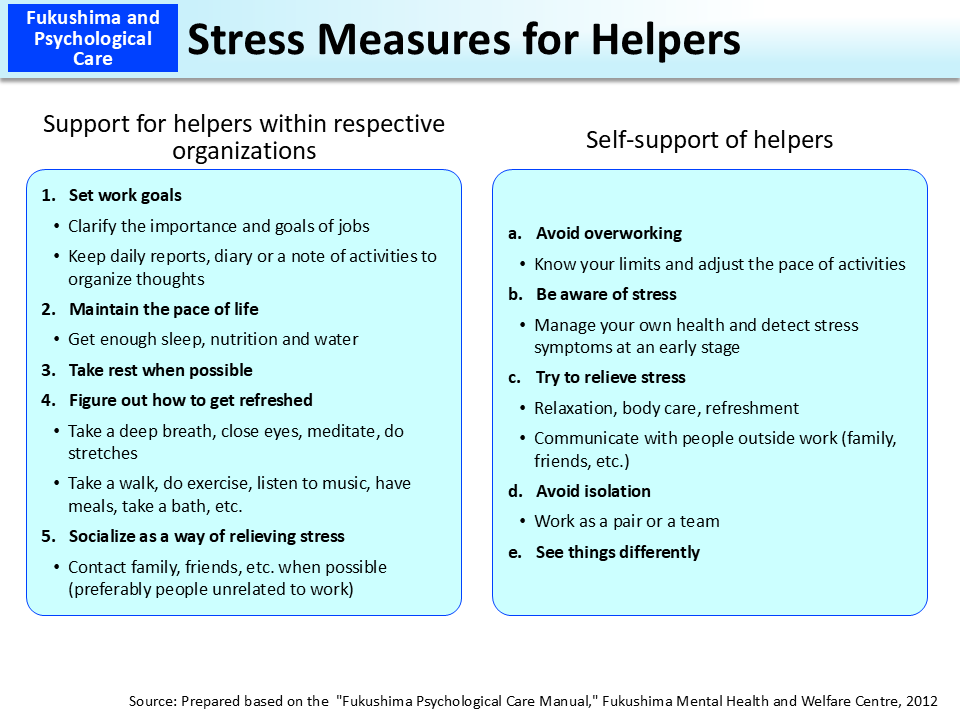Stress Measures for Helpers
“Fukushima Psychological Care Manual” by the Fukushima Mental Health and Welfare Centre provides guidelines regarding stress measures for helpers.
Helpers' self-support efforts include avoiding overworking and being aware of their own stress, etc. It might be difficult to avoid overworking given the situation they are in, but it is important for individuals to know their own limits so that they can adjust the pace of activities and to hand off work to someone else in order to avoid meeting too many affected people in a day. Having stress symptoms is not something to be ashamed of but an important clue for self-health checks. It is necessary to manage health by oneself and notice any symptoms at an early stage. Relaxation, body care, refreshment, and communication with people outside work (family, friends, etc.) are effective in relieving stress. Isolation should be avoided as much as possible in a situation where one can easily become stressed out, so it would be necessary to work as a pair or a team and to have opportunity to share experience (disaster situations individual helpers witnessed and their feelings) with coworkers on a periodic basis or to be given instructions from senior workers, etc. It is natural that individuals cannot change everything on their own, especially in difficult situations after disasters, so it is better to rate one's own activities positively and there is no need at all to have negative thoughts considering not being fit or competent for the job.
The manual also cites some concrete ways to provide care for helpers within respective organizations.
- Feeling guilty about taking a rest alone while others are working is a sign of stress.
- When noticing any physical or psychological symptoms, consult with a superior or coworkers at an early stage.
- Exchange words with coworkers as often as possible to encourage each other.
- Be careful about one's own health and coworkers' health and tell the relevant person and the supervisor if someone has too much workload.
(Related to p.154 of Vol. 1, “Support for Helpers: Three Stages of Care”)
- Included in this reference material on March 31, 2016

